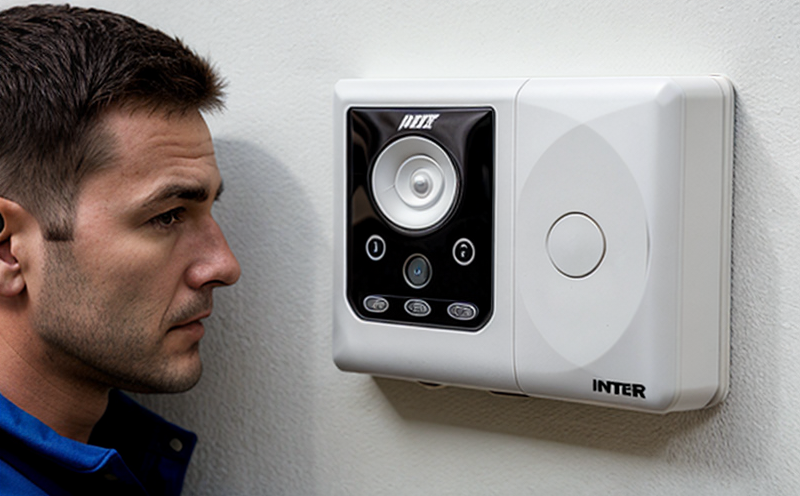Intruder alarm system inspection
The Intruder Alarm System (IAS) inspection is a critical process aimed at ensuring that all components of an IAS function reliably and securely. This inspection covers a broad range of tests, from the initial design assessment to the final functional checks. It ensures compliance with international standards such as EN 50131-2 for low-voltage electrical equipment intended for use in intrusion alarm systems.
The process begins with a detailed review of the system's design and documentation. This involves checking that all components are correctly specified, including detection devices, signal transmission lines, control units, and power supplies. The inspection also evaluates the installation quality, ensuring that all elements are properly connected and securely mounted in accordance with relevant guidelines.
Functional testing is a crucial part of this service. It includes checks on the operation of each component under various scenarios to ensure they respond appropriately. This could involve simulating an intrusion event at different points within the system to verify proper activation of alarm signals, correct functioning of central control units, and effective communication with monitoring centers.
Additionally, the inspection evaluates the overall performance of the IAS in terms of signal integrity, response time, and reliability. Compliance with standards like ISO 19053-2 is essential here to ensure that the system meets safety and security requirements effectively.
The Eurolab team uses state-of-the-art equipment and methodologies to conduct these inspections. Our expertise ensures not only adherence to regulations but also the highest level of performance. By leveraging our deep industry knowledge, we can provide tailored solutions to meet specific client needs while maintaining rigorous quality standards.
Scope and Methodology
The scope of an Intruder Alarm System (IAS) inspection encompasses several key areas critical for the reliable operation and security of the system. This includes a comprehensive assessment of all hardware components, software functionalities, installation practices, and operational procedures.
Our methodology starts with thorough documentation review, where we examine technical drawings, wiring diagrams, user manuals, and other relevant documents to understand the system's architecture fully. Following this, we conduct detailed inspections of each component part, ensuring they are installed correctly and meet all specified requirements.
The functional testing phase is extensive, involving various simulated scenarios designed to stress-test different parts of the IAS. This helps identify any potential weaknesses or non-conformities early on. We also perform network configuration checks to ensure seamless integration between various components within the system.
Finally, we assess compliance with relevant international standards such as EN 50131-2 and ISO 19053-2 throughout the inspection process. This ensures that our findings are consistent with industry best practices and regulatory expectations.
Eurolab Advantages
At Eurolab, we pride ourselves on providing unparalleled services for Intruder Alarm System inspections. Our team comprises highly skilled professionals who possess extensive experience in this field, ensuring accurate assessments and reliable results.
We employ cutting-edge technology and advanced analytical tools that allow us to conduct thorough examinations of even the most complex systems. This precision helps catch any issues early on, preventing costly delays later down the line.
Our approach is tailored specifically for each client's unique requirements, allowing us to deliver services that are both efficient and effective. Whether you need regular maintenance checks or one-off inspections after installation, we can adapt our processes accordingly.
In addition to technical expertise, Eurolab offers excellent customer service support throughout the entire inspection process. Our dedicated team will keep you informed every step of the way, ensuring transparency and clarity regarding all aspects of your project.
Use Cases and Application Examples
| Use Case | Description |
|---|---|
| Data Center Security | Ensuring robust protection for sensitive data stored in high-security environments. |
| Residential Safety | Promoting peace of mind by providing homeowners with reliable intrusion detection systems. |
| Corporate Premises Protection | Aiding businesses to safeguard their assets and employees against unauthorized access. |
| Critical Infrastructure Defense | Enhancing security measures at facilities essential for national operations and services. |
| Public Spaces Surveillance | Supporting local authorities in maintaining public safety through effective monitoring solutions. |
| Construction Site Monitoring | Making sure that construction sites remain secure during the installation phase of new buildings or renovations. |
| Remote Locations Protection | Offering comprehensive security for locations far from urban centers where traditional methods might be less effective. |
| Vulnerable Areas Defense | Maintaining high levels of protection around areas that are particularly susceptible to threats or attacks. |
These use cases highlight the versatility and importance of Intruder Alarm System inspections across various sectors. By ensuring compliance with relevant standards, we help protect sensitive information, enhance public safety, support business continuity plans, and safeguard critical assets.





